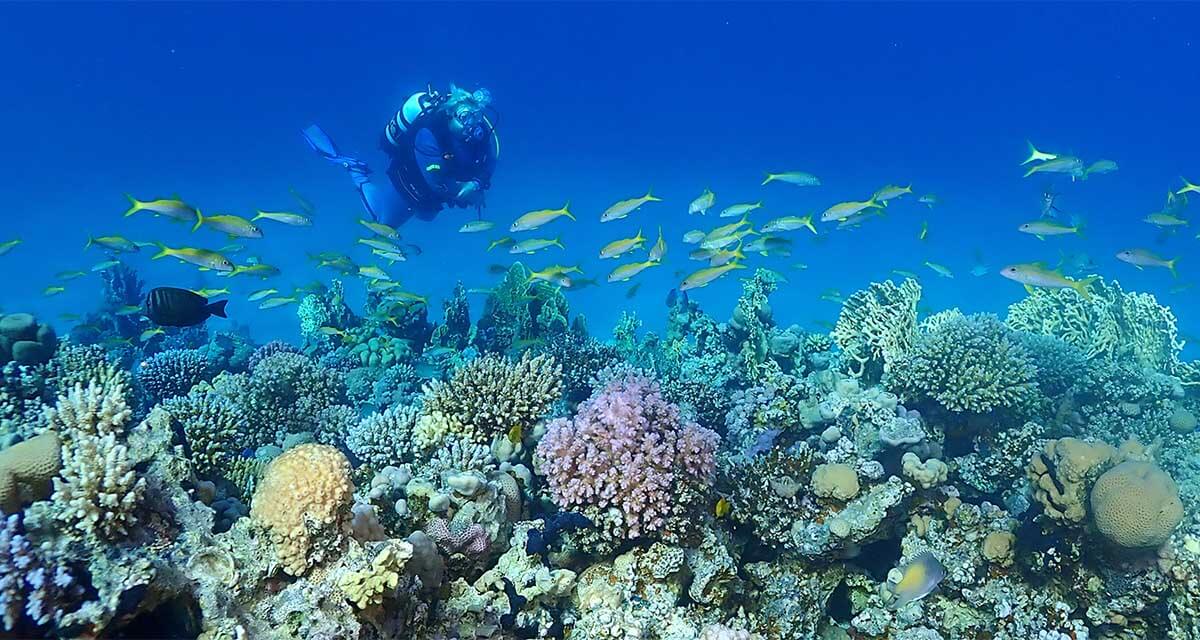
The beaches around the Egyptian resort of Sahl Hasheesh have reopened to certified divers following two fatal shark attacks on 2 July. Swimming, snorkelling and dive courses remain suspended, although restrictions are expected to be lifted before the Eid Al Adha holiday, which begins on 9 July.
The restrictions were imposed after the death of a 68 year-old Austrian woman, who was snorkelling close to the shore when she was attacked by what was been reported as a mako shark. A second woman, a Romanian national believed to be in her 40s, was killed in a second attack a few hours later, some 650m from the first incident.
Contrary to early reports, beaches around Hurghada, some 25km north of Sahl Hasheesh, were not included in the restrictions. Diving and watersports activities continued as normal, with divers staying in Sahl Hasheesh transported to Hurghada for daily dive trips.
DIVE reached out to SUBEX Sahl Hasheesh – whose founder, Red Sea diving pioneer Johann Vifian, was featured in our Winter 2018/19 magazine – for clarification of the current situation.

‘Hurghada was open at all times and many diving boats went out and swimming was permitted everywhere north of Sahl Hasheesh,’ wrote SUBEX representative Wera van Dillen. ‘Some British media also confused the names Sharm El Sheikh and Sahl Hasheesh and reported that Sharm El Sheikh is closed, too, but all that is not correct. Boat trips to Hurghada, north of Sahl Hasheesh, were available all the time and our guests took advantage of this. We went diving every day last week.’
Reports on the species of shark involved in the attack have speculated that it may have been an oceanic whitetip rather than a mako, as oceanic whitetips are known for their occasionally aggressive behaviour and have been responsible for the small number of incidents that have occurred in the Red Sea over the years.
At the time of writing, however, an official statement from Egypt’s Chamber of Diving and Watersports (CDWS) reports that the shark was identified as a mako. While very rarely seen by divers in the Red Sea, and ordinarily a deep-water fish, it is not completely without precedent, as a mako was responsible for two of the five shark attacks on snorkellers in Sharm El Sheikh in 2010. The shark was later caught and reported to be severely malnourished.
The behaviour is, however, extremely rare, and almost unheard of in the generally shallow fringing waters around Sahl Hasheesh and the surrounding area.
‘We at SUBEX have been diving in the bay of Sahl Hasheesh for over six years, usually twice a day, and have never observed a shark,’ said Wera. ‘We make sure that the group stays close together and no one strays from the group. Our instructors are of course trained and experienced on the recommended behaviour in a shark encounter, as they have already encountered sharks in other diving areas.’
Dive and snorkel guides have been required to take shark awareness courses since a handful of biting incidents resulted in the Brothers Islands being closed to divers for three and a half months in December 2018.


